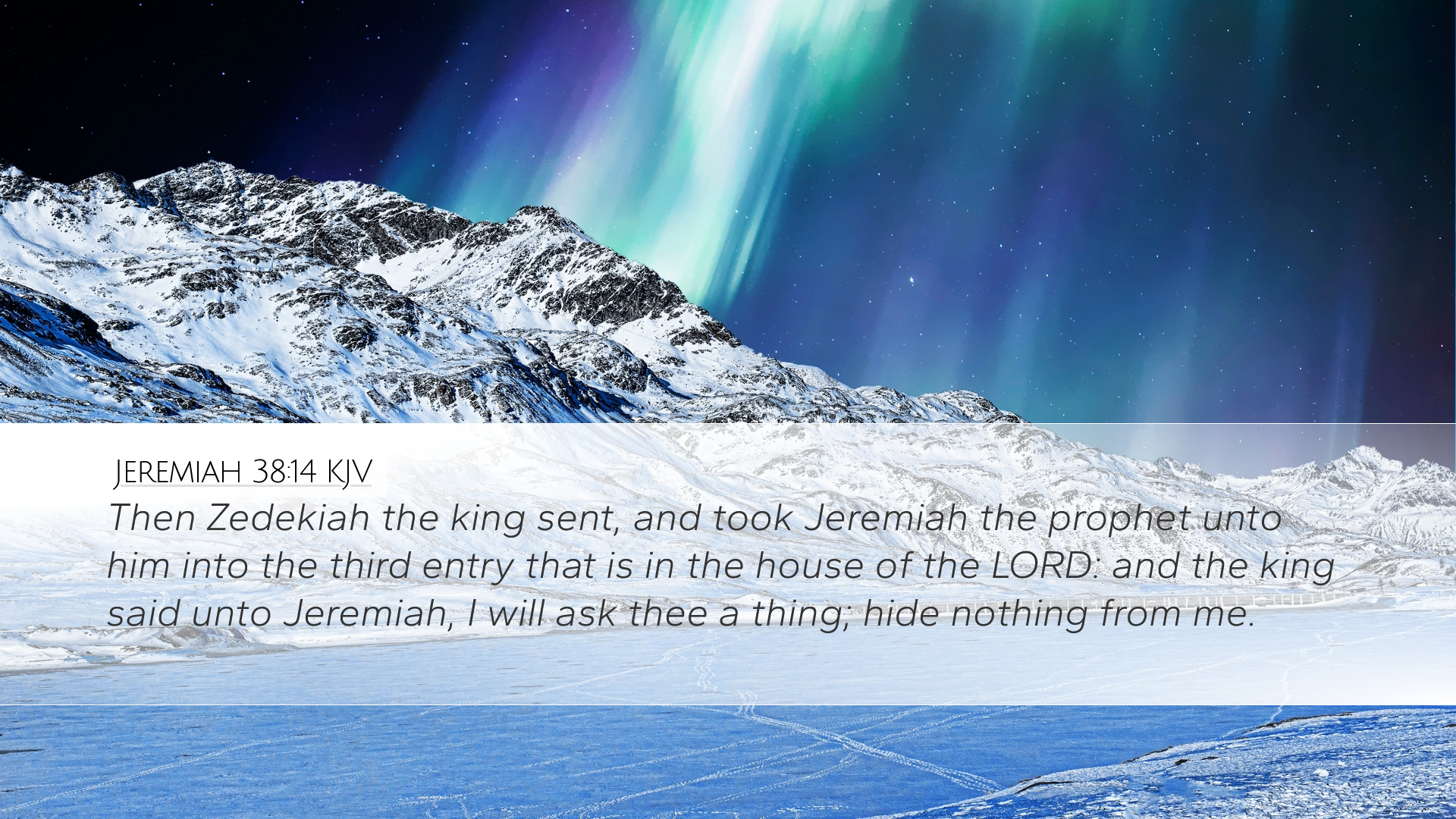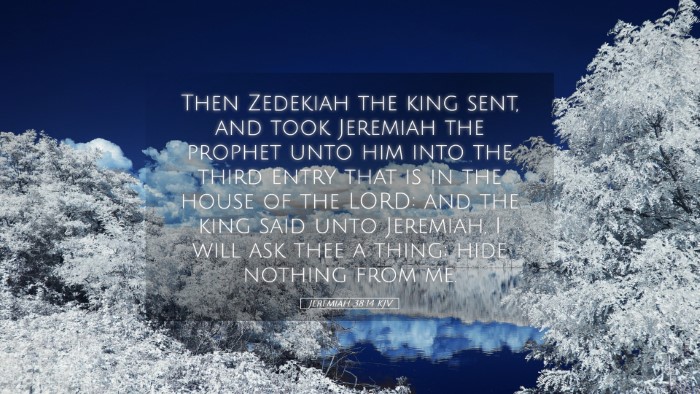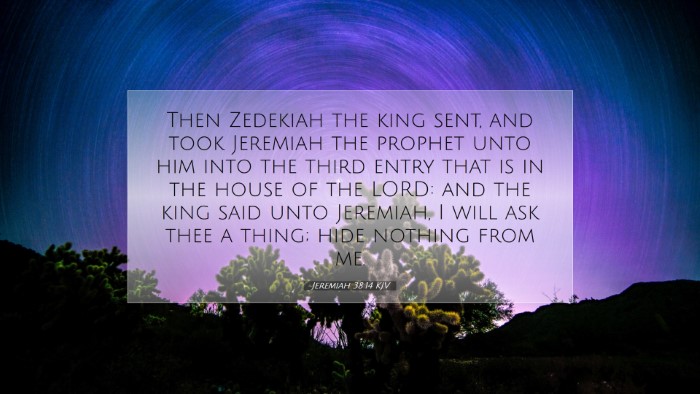Bible Commentary on Jeremiah 38:14
Verse Reference: Jeremiah 38:14 - "Then King Zedekiah sent and took Jeremiah the prophet unto him into the third entry that is in the house of the Lord: and the king said unto Jeremiah, I will ask thee a thing; hide nothing from me."
Introduction
This verse reflects a critical moment in the life of the prophet Jeremiah, highlighting the dynamics of prophetic ministry in a time of national crisis. King Zedekiah, the final king of Judah, seeks counsel from Jeremiah during a season of turmoil and impending judgment. The following commentary synthesizes insights from renowned public domain sources to provide a deeper understanding of the text.
Contextual Background
Jeremiah's prophetic ministry spanned several decades, encompassing the lead-up to the Babylonian exile. He was known as the "weeping prophet," marked by his deep concern for his people and the message of impending judgment that he bore. Zedekiah's request for an audience with Jeremiah reveals his complex character—a ruler caught between divine instruction and political pressure.
Historical Context
This verse is set against the backdrop of Jerusalem's final days before its fall to Babylon. Zedekiah was a puppet king under Nebuchadnezzar, who faced internal and external threats as Babylon's siege tightened around the city.
Theological Significance
This encounter between Zedekiah and Jeremiah raises profound theological implications regarding the sovereignty of God, the role of the prophet, and the nature of human receptivity to divine counsel.
Analysis of Key Elements
-
King Zedekiah's Initiative
Zedekiah's decision to summon Jeremiah indicates a moment of desperation. Matthew Henry suggests that “men in distress turn to men of God.” This action reflects a duality in Zedekiah's character—both a ruler with authority and a man tormented by fear of impending doom.
-
Prophetic Authority
Jeremiah's role as a prophet endowed him with the authority to speak on behalf of God. Albert Barnes notes that prophets were often marginalized, yet their voices became vital in crises. This interaction marks a significant recognition of Jeremiah’s prophetic role despite the king’s previous disregard.
-
Invitation to Disclose Truth
Zedekiah's request to "hide nothing" underscores the critical nature of truth in prophecy. Adam Clarke emphasizes that the king’s plea reveals a desire not only for counsel but also for the unvarnished reality of the situation he faces. This is a moment of vulnerability where the powerful seek clarity.
The Nature of Prophetic Ministry
Jeremiah's lifestyle and prophetic declarations serve to instruct both Zedekiah and the wider community of believers about God’s character and the necessity of obedience. The dynamic between ruler and prophet illustrates the tension found within leadership when it confronts divine authority.
Contrast Between Authority and Influence
While Zedekiah holds political power, it is Jeremiah who wields a profound spiritual influence. Matthew Henry remarks that “it is better to have the truth of God on our side than all the forces of men.” This occasion is a reminder that God’s voice often rises above human authority.
Lessons for Today
This passage provides invaluable lessons for theologians, pastors, and students of scripture regarding the interplay between authority and accountability within spiritual leadership.
- Embrace Vulnerability: Leaders must be willing to seek divine guidance and accept counsel from those who proclaim God's truth.
- The Importance of Truth: In times of difficulty, the unconfined truth provided by God should be sought and heeded, regardless of personal discomfort.
- Divine Sovereignty: This interaction reflects the overarching sovereignty of God during tumultuous periods, affirming faith in His plans despite prevailing circumstances.
Conclusion
In Jeremiah 38:14, we witness a pivotal moment underscoring the importance of seeking wisdom in adversity and the prophetic call to communicate God’s truth. As modern readers and interpreters of this passage, it is vital to reflect on our own openness to divine guidance, especially in times of distress.


